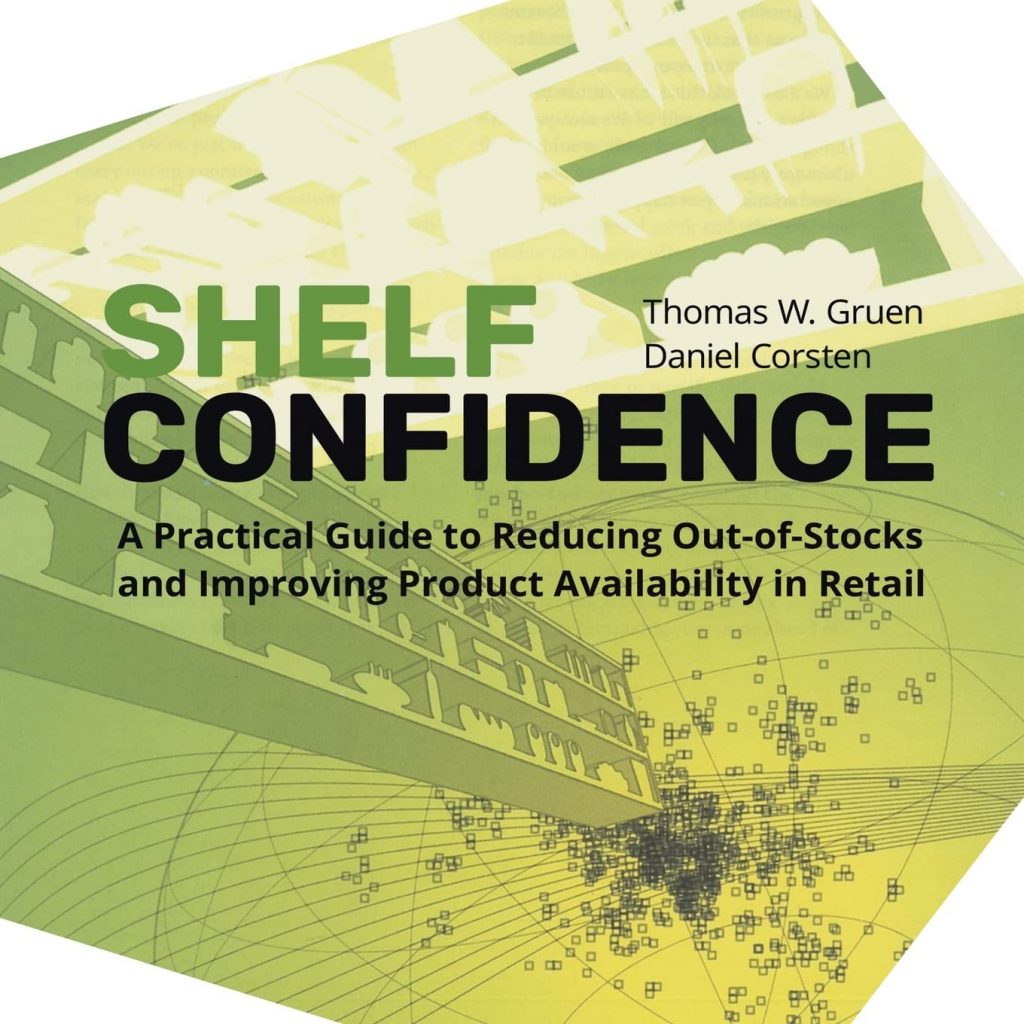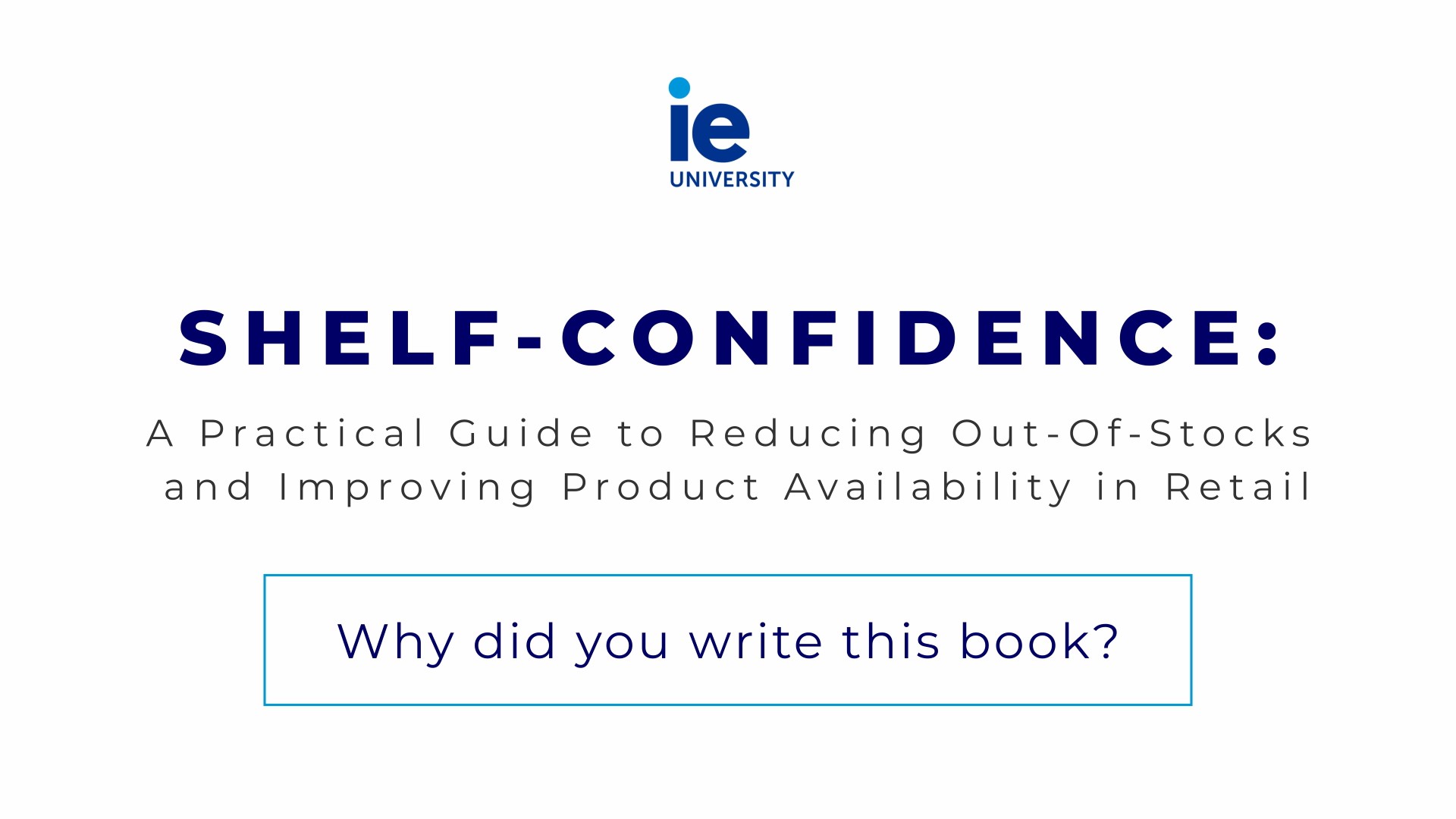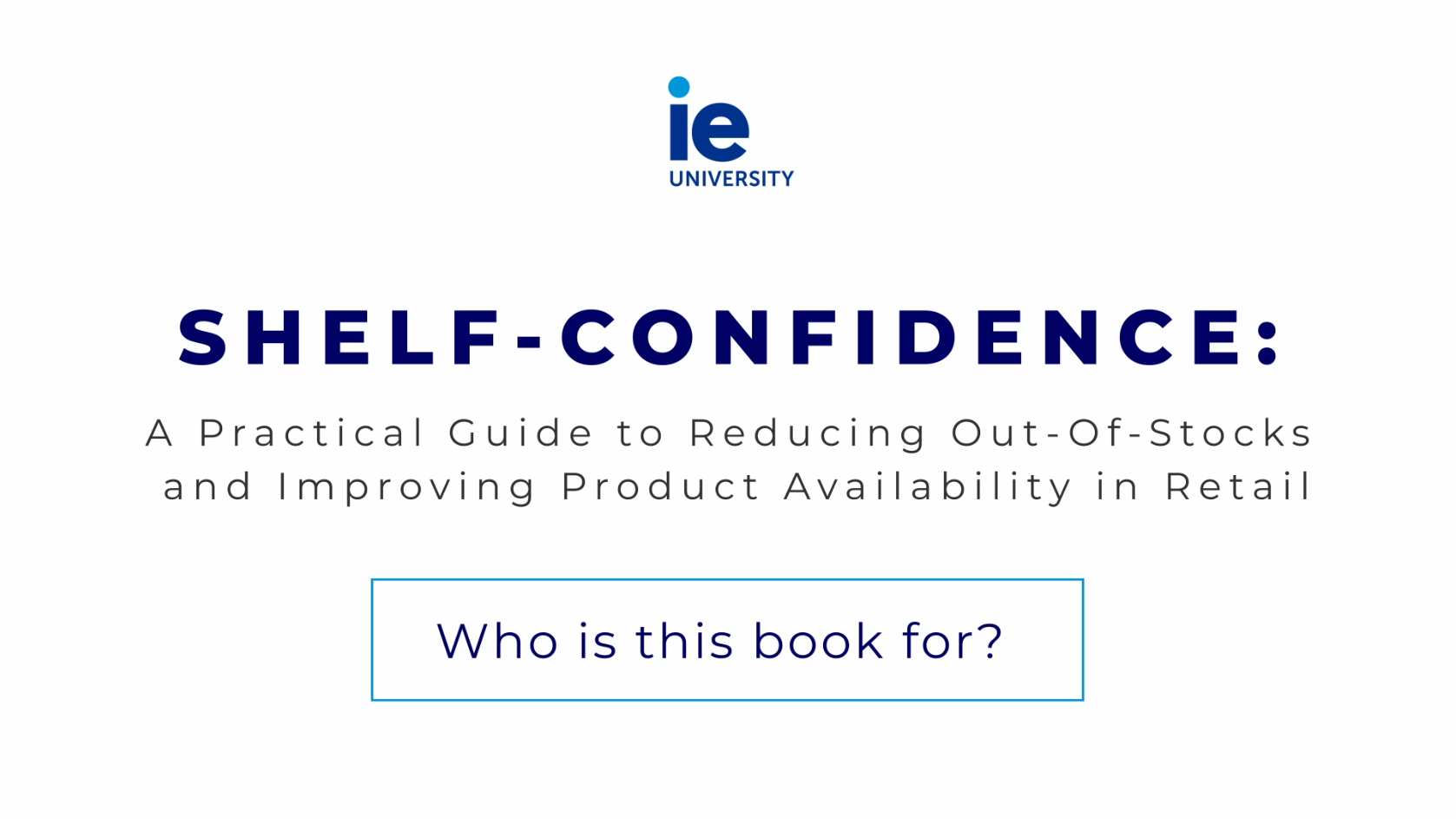Daniel Corsten
"What really matters in the retail industry is to ensure that the customer is able to find what they are looking for. That's what shelf-confidence really means."
Daniel Corsten is associate professor of Operations Management at IE University. Before joining IE, he was an associate professor at London Business School and University of St. Gallen. He obtained his PhD at University St. Gallen where he was also assistant professor and director of the Institute of Technology Management and Logistics. Daniel taught or researched as a visiting scholar at INSEAD (France and Singapore), the Wharton School, (USA) and the Harvard Business School (USA).
Daniel is a frequent keynote speaker on Operational Innovation and Leadership, Strategy Execution, Scaling Start-Ups, Direct Brands, Retail Transformation, and Supply Chain Resilience and he has received numerous awards for his engaging participant-centric teaching.
Daniel is co-author of the book Shelf-Confidence: A Practical Guide to Reducing Out-Of-Stocks and Improving Product Availability in Retail, which is based on 20 years of research with global retailers and sponsored by the Consumer Brands Association of America and the Procter & Gamble Company. He is also the author of the Springer book Supply Chain Management Implementation.
Daniel´s research has been published by the Harvard Business Review, his work was featured in the Financial Times and his case studies have won several awards.
The moment of truth in retail, that is, to have a product available when you need it, is jeopardized by many small problems. Stakeholders need to know how to fix these problems in order to offer their customers shelf-confidence.
Tom has lived in New Hampshire since the summer of 2011 when he arrived to take a new challenge at University of New Hampshire, where he served for 9 years as Chair of the Marketing Department at the Peter T. Paul College of Business, and he now serves as Professor of Marketing. Previously he served on the faculty of the University of Colorado at Colorado Springs and on the faculty of the Goizueta Business School at Emory University from 1996-2001. He holds Ph.D., MS, and MBA degrees in Marketing from Indiana University’s Kelly School of Business. Before entering the academic world, he worked as a retail trade association executive for ten years.
His research focuses on the management of customer relationships, including retail out-of-stocks, category management, sales and marketing outsourcing, and customer-to-customer value creation. His research has been widely published including the Harvard Business Review, Journal of Marketing, Journal of the Academy of Marketing Science, Journal of Retailing, Journal of Business Research, and Journal of Applied Psychology.
Everyone who shops encounters out-of-stocks. It's frustrating. So, it is important to understand how it occurs, how widespread it is, and how to fix it.

SHELF-CONFIDENCE
Out-of-Stock and unavailable! In 2020, the perfect storm hit when the COVID-19 pandemic caused shoppers to buy food, toilet paper, and other items in a panic. The result was a large number of items were suddenly out of stock, leading to more buying and an outright crisis.
This book takes readers behind the scenes of consumer products retailing, uncovering and explaining the extent, the causes, and the shopper reactions to out-of-stock items. The authors draw on their decades of experience studying the availability of consumer goods to explore how to improve service levels, slash costs, boost efficiency, and enhance customer satisfaction.
Whether you’re a manufacturer, wholesaler, retailer, retailer consultant, researcher, member of the media, or a member of a trade association, you’ll discover useful insights in this well-researched book. Shoppers will also enjoy learning the behind-the-scenes details of how items get to the shelves, and how often they are out-of-stock!





